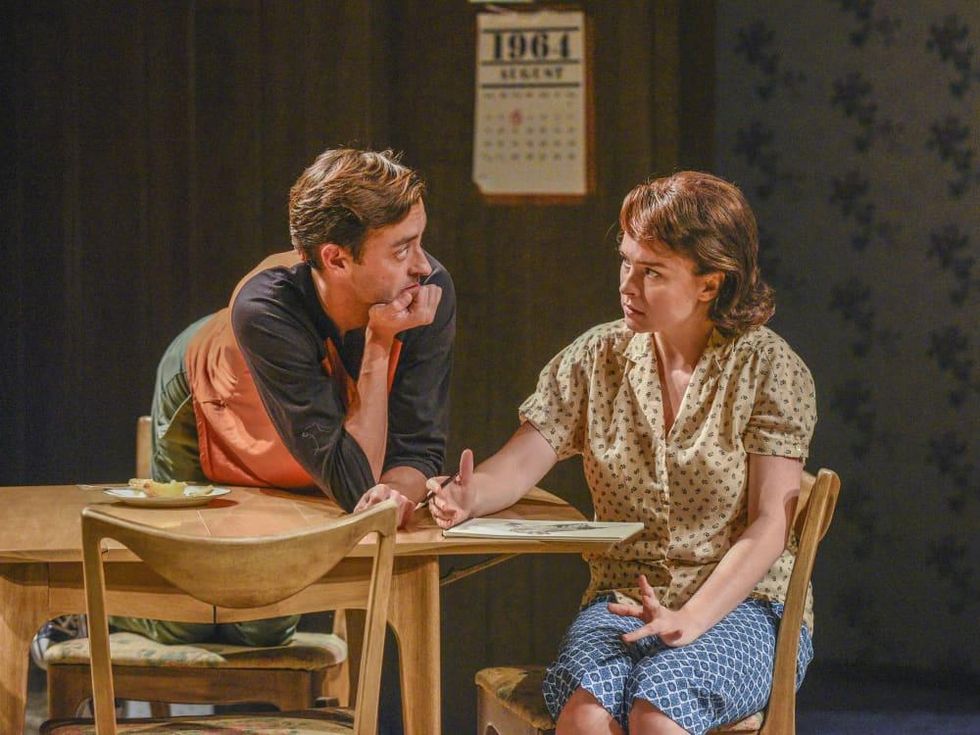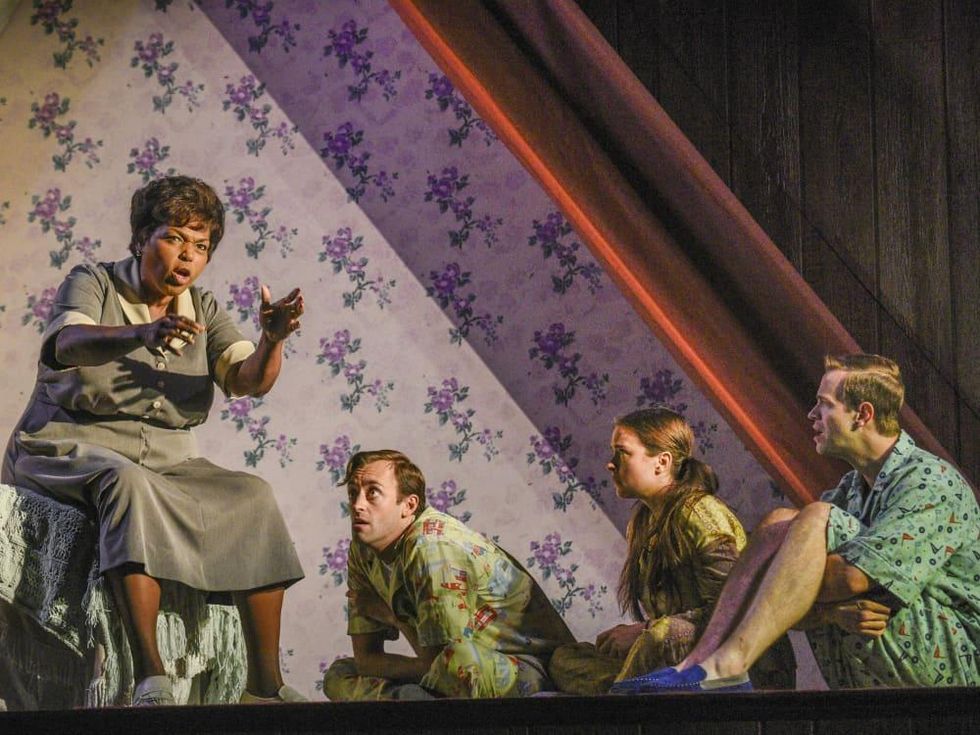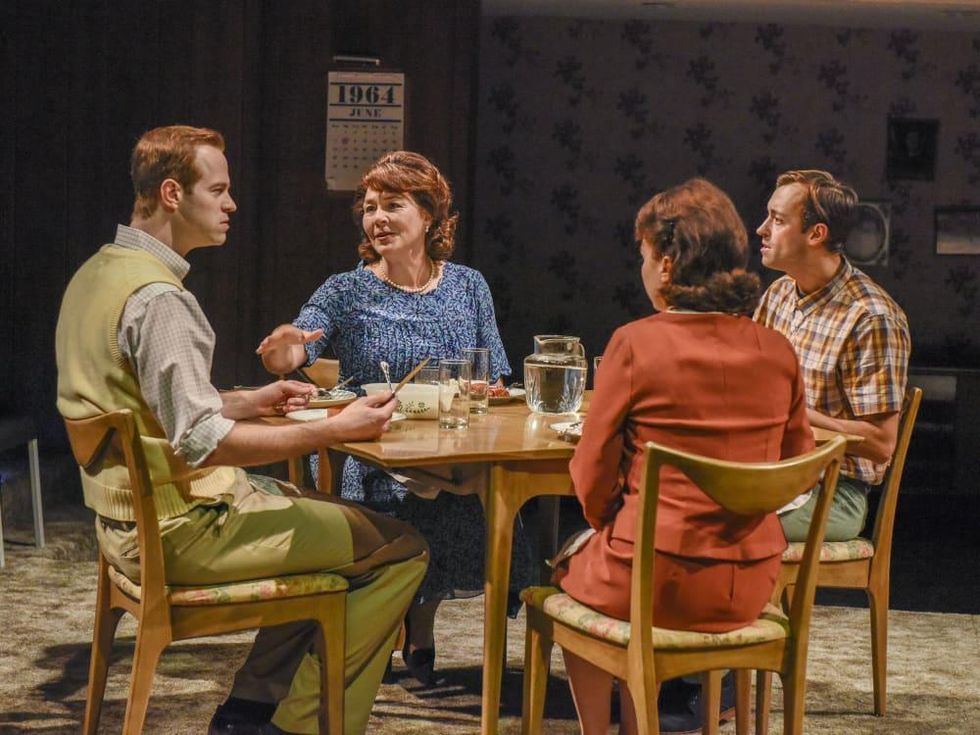Theater Review
Miller, Mississippi is a formidable new work from Dallas Theater Center
Stories set in the 1960s Deep South justifiably tend to focus on the struggles faced by African Americans, giving lip service to the perspective of white individuals, whether they agreed with the prevailing attitudes of the day or not.
Playwright and Mississippi native Boo Killebrew sets her new play Miller, Mississippi in that hostile time and place, but chooses to tell a racially charged story through the experiences of a white family. The world premiere, produced by Dallas Theater Center, is a Civil Rights tale in which only two black characters are seen onstage (and both are played by the same actor).
Following their patriarch's death in 1960, members of the Miller family — mother Mildred (Sally Nystuen Vahle), older brother Thomas (Alex Organ), sister Becky (Leah Karpel), and baby brother John (Dylan Godwin) — each struggle in their own way with his absence and the volatile atmosphere of the era.
Thomas attempts to become the man of the family, assuming and idolizing both his late father's good and bad traits. Tomboy Becky has dreams of becoming an artist, but Mildred’s traditional expectations quickly stifle that goal. John is especially close with the family’s housekeeper, Doris (Liz Mikel), and that relationship spurs the most progressive thoughts in the family.
Time passes quickly, punctuated by major political and cultural events that are broadcast on the television set that sits prominently in the living room (Brett Banakis' two-story set makes the intimate Studio Theatre space seem more expansive than it is, and his video design is seamless). Instead of merely serving as context for the years that go by, the broadcasts often underscore the evolution of the family dynamic as it goes from loving to toxic. Daniel Kluger's original music and sound design further heighten the tension.
Director Lee Sunday Evans doesn't shy away from Killebrew's potent Southern Gothic themes. As the family’s relationships change, so does the mood in the theater, and many of the dramatic exchanges are emotional gut punches for both the characters and the audience.
However, the two-and-a-half-hour story is so front-loaded with drama that the much quieter and shorter second act almost feels like a letdown. The revelations there are impactful, but in smaller ways than the hugely powerful first act.
Killebrew also takes on so many different mores — racial, political, sexual, familial — that the story threatens to collapse under the weight of it all. It’s not inconceivable that one family could be dealing with all the issues that crop up during the play, but removing some relatively minor ones might streamline the overall plot.
Regardless of any story faults, all five actors (three of whom are DTC resident acting members) deliver stunning and compelling performances. The ensemble piece requires them to be convincing at multiple disparate ages, and they all certainly are. Killebrew has written a true actor’s showcase, and DTC’s cast is utterly up to the task.
Despite some structural imperfections, Miller, Mississippi is a formidable new piece of theater that deserves to draw attention well beyond its run in Dallas.
---
Dallas Theater Center's production of Miller, Mississippi runs at the Wyly Theatre through October 1.



